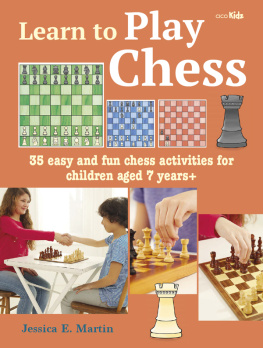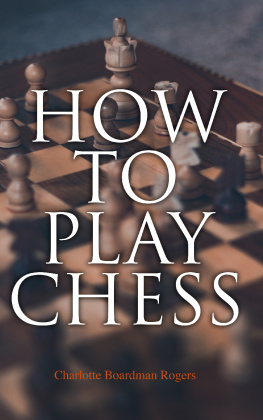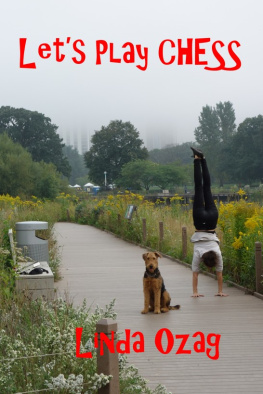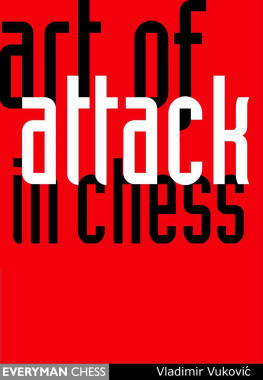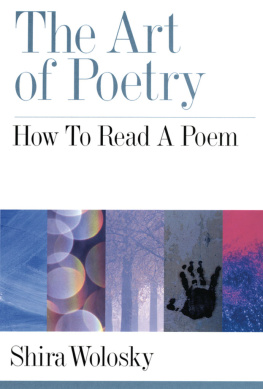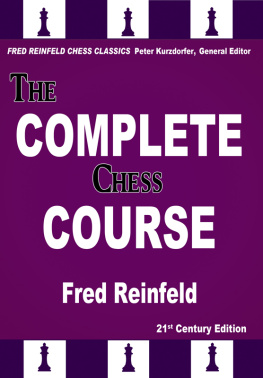Shira Chess - Play like a Feminist.
Here you can read online Shira Chess - Play like a Feminist. full text of the book (entire story) in english for free. Download pdf and epub, get meaning, cover and reviews about this ebook. year: 2020, publisher: MIT Press, genre: Romance novel. Description of the work, (preface) as well as reviews are available. Best literature library LitArk.com created for fans of good reading and offers a wide selection of genres:
Romance novel
Science fiction
Adventure
Detective
Science
History
Home and family
Prose
Art
Politics
Computer
Non-fiction
Religion
Business
Children
Humor
Choose a favorite category and find really read worthwhile books. Enjoy immersion in the world of imagination, feel the emotions of the characters or learn something new for yourself, make an fascinating discovery.

- Book:Play like a Feminist.
- Author:
- Publisher:MIT Press
- Genre:
- Year:2020
- Rating:3 / 5
- Favourites:Add to favourites
- Your mark:
- 60
- 1
- 2
- 3
- 4
- 5
Play like a Feminist.: summary, description and annotation
We offer to read an annotation, description, summary or preface (depends on what the author of the book "Play like a Feminist." wrote himself). If you haven't found the necessary information about the book — write in the comments, we will try to find it.
Play like a Feminist. — read online for free the complete book (whole text) full work
Below is the text of the book, divided by pages. System saving the place of the last page read, allows you to conveniently read the book "Play like a Feminist." online for free, without having to search again every time where you left off. Put a bookmark, and you can go to the page where you finished reading at any time.
Font size:
Interval:
Bookmark:
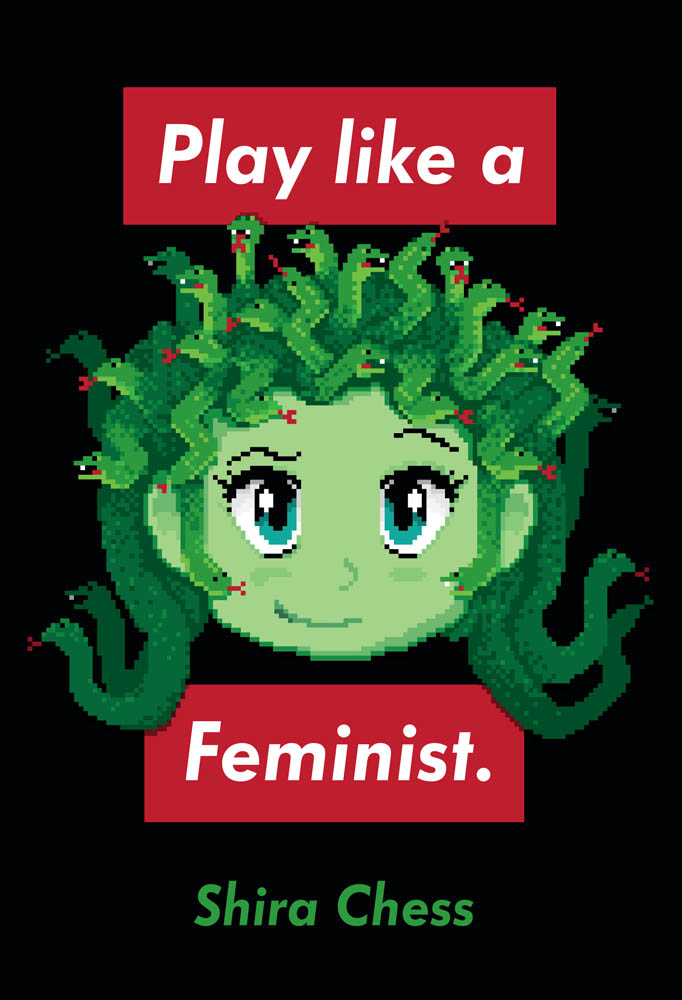
Playful Thinking
Jesper Juul, Geoffrey Long, William Uricchio, and Mia Consalvo, editors
The Art of Failure: An Essay on the Pain of Playing Video Games, Jesper Juul, 2013
Uncertainty in Games, Greg Costikyan, 2013
Play Matters, Miguel Sicart, 2014
Works of Game: On the Aesthetics of Games and Art, John Sharp, 2015
How Games Move Us: Emotion by Design, 4Katherine Isbister, 2016
Playing Smart: On Games, Intelligence, and Artificial Intelligence, Julian Togelius, 2018
Fun, Taste, & Games: An Aesthetics of the Idle, Unproductive, and Otherwise Playful, John Sharp and David Thomas, 2019
Real Games: Whats Legitimate and Whats Not in Contemporary Videogames, Mia Consalvo and Christopher A. Paul, 2019
Achievement Relocked: Loss Aversion and Game Design, Geoffrey Engelstein, 2020
Play like a Feminist, Shira Chess, 2020
Shira Chess
The MIT Press
Cambridge, Massachusetts
London, England
2020 Massachusetts Institute of Technology
All rights reserved. No part of this book may be reproduced in any form by any electronic or mechanical means (including photocopying, recording, or information storage and retrieval) without permission in writing from the publisher.
Library of Congress Cataloging-in-Publication Data
Names: Chess, Shira, author.
Title: Play like a feminist / Shira Chess.
Description: Cambridge, Massachusetts : The MIT Press, [2020] | Series: Playful thinking | Includes bibliographical references and index.
Identifiers: LCCN 2019057053 | ISBN 9780262044387 (hardcover)
Subjects: LCSH: Feminism and video games. | Women video gamers. | Video gamesSocial aspects. | WomenRecreationSocial aspects.
Classification: LCC GV1469.34.F46 C54 2020 | DDC 794.8082--dc23
LC record available at https://lccn.loc.gov/2019057053
ISBN: 978-0-262-36044-9
10 9 8 7 6 5 4 3 2 1
d_r0
This book is dedicated to Charlotte Chess, who I never met.
Many people (we series editors included) find video games exhilarating, but it can be just as interesting to ponder why that is so. What do video games do? What can they be used for? How do they work? How do they relate to the rest of the world? Why is play both so important and so powerful?
Playful Thinking is a series of short, readable, and argumentative books that share some playfulness and excitement with the games that they are about. Each book in the series is small enough to fit in a backpack or coat pocket, and combines depth with readability for any reader interested in playing more thoughtfully or thinking more playfully. This includes, but is by no means limited to, academics, game makers, and curious players.
So we are casting our net wide. Each book in our series provides a blend of new insights and interesting arguments with overviews of knowledge from game studies and other areas. You will see this reflected not just in the range of titles in our series but also in the range of authors creating them. Our basic assumption is simple: video games are such a flourishing medium that any new perspective on them is likely to show us something unseen or forgotten, including those from such unconventional voices as artists, philosophers, or specialists in other industries or fields of study. These books are bridge builders, cross-pollinating both areas with new knowledge and new ways of thinking.
At its heart, this is what Playful Thinking is all about: new ways of thinking about games and new ways of using games to think about the rest of the world.
Jesper Juul
Geoffrey Long
William Uricchio
Mia Consalvo
This book sits at the cross-section of play, video games, and feminism. While this is by no means the first attempt at merging these topics, I have spent a good deal of time thinking about who you are and why you are reading this book.
- If you identify as a feminist, but rarely (or never) pick up video games, and worry about the frivolity of your leisure time, this book is meant for you to rethink the value of play and games in various aspects of your life.
- If you identify as a gamer, but are not so sure about feminism, this book is meant to help you understand the value of equality, and how embracing feminism might improve video games.
- If you identify as a feminist gamer, this book is meant to remind you of many of the arguments you probably already know, and make you think increasingly about improving the play of those around you who may not be there already.
Writing for three distinct audiences is exhausting. Some of you know things that others do not. Some of you might find my arguments obvious, while others might need a broader introduction to certain themes. This book has both footnotes and endnotes. Endnotes (numbered) are all sources, and footnotes (lettered) are context, commentary, and some additional sources. The footnotes are intended to delve deeper into specific ideas and provide context (both personal and through scholarly research). By the end of this book, I hope that you three distinct audiences will not be so different after all.
Because this feminist book is written, in part, for those who do not necessarily identify themselves as feminists, I want to clarify what the termoften misused and abusedreally means. In As such, this book is meant to call everything into question and challenge our understanding of play as it relates to larger inequalities.
This book was written on the shoulders of giants who inspired me with their scholarship, presentations, and conversations. I have tried to cite as many of you as possible. Thanks to all of you who laid the groundwork for this book. #CiteHerWork
Some amazing people read and gave feedback on iterations of this book in a variety of formats. This book would not have been possible without feedback from Laura Alexander, Amber Davisson, Kishonna Gray, Taneem Husain, Adrienne Massanari, Emily McGill, Christopher A. Paul, Anastasia Salter, and Wes Unruh.
Thank you to Doug Sery, Noah Springer, and the folks at the MIT Press for facilitating a seamless and enjoyable writing experience. Additional thanks to the Playful Thinking series editors for taking a chance on this project: Jesper Juul, Geoffrey Long, William Uricchio, and Mia Consalvo. Bonus appreciation to Mia for being patient, encouraging, and inspiring when this idea was no more than a title and paragraph.
A big thanks to my graduate assistant, Andrea Clements, for a bang-up job of transcribing quickly and precisely.
Thank you to Cathy Hannabach and Ideas on Fire for their indexing work.
This project has had deep support from my colleagues in the Department of Entertainment and Media Studies at the University of Georgia. In particular, thank you to James Biddle, Matthew Evans, Kate Fortmueller, Annie Gilbert, and Jay Hamilton. Im grateful as well to Bart Wojdynski for his friendship and allyship. Additional thanks to the wackiest of colleagues (you know who you are) whose advice, support, and humor has made my time at the University of Georgia deeply enjoyable.
A few industry folks have helped me to think through some big picture issues. Thank you to Marie Mika and the folks on the Diner Dash team at Glu. Additional appreciation to Justin Williams, who has continued to help me challenge my industry perspectives, and Anapurna Interactive for making games I want to write about.
Next pageFont size:
Interval:
Bookmark:
Similar books «Play like a Feminist.»
Look at similar books to Play like a Feminist.. We have selected literature similar in name and meaning in the hope of providing readers with more options to find new, interesting, not yet read works.
Discussion, reviews of the book Play like a Feminist. and just readers' own opinions. Leave your comments, write what you think about the work, its meaning or the main characters. Specify what exactly you liked and what you didn't like, and why you think so.


